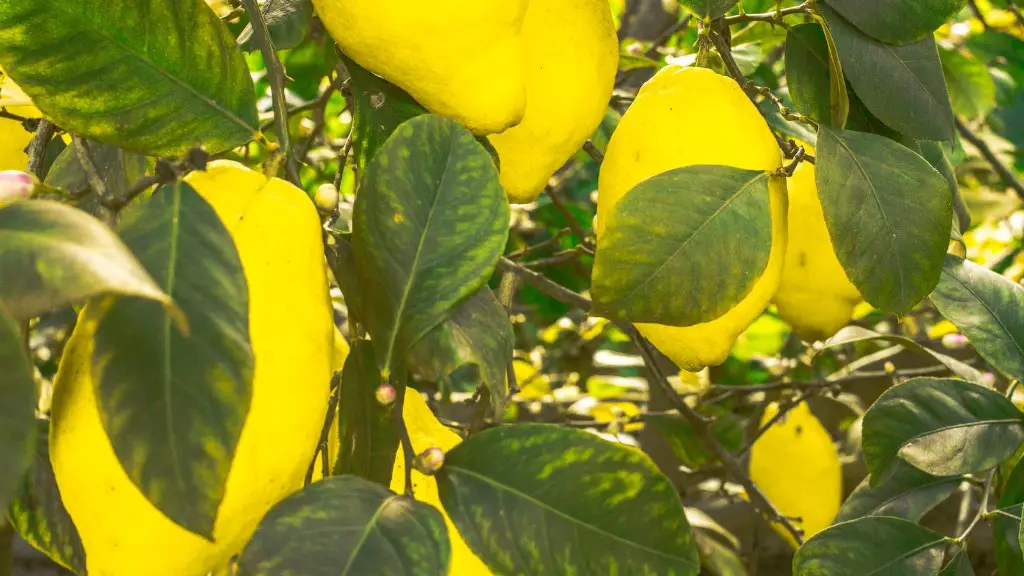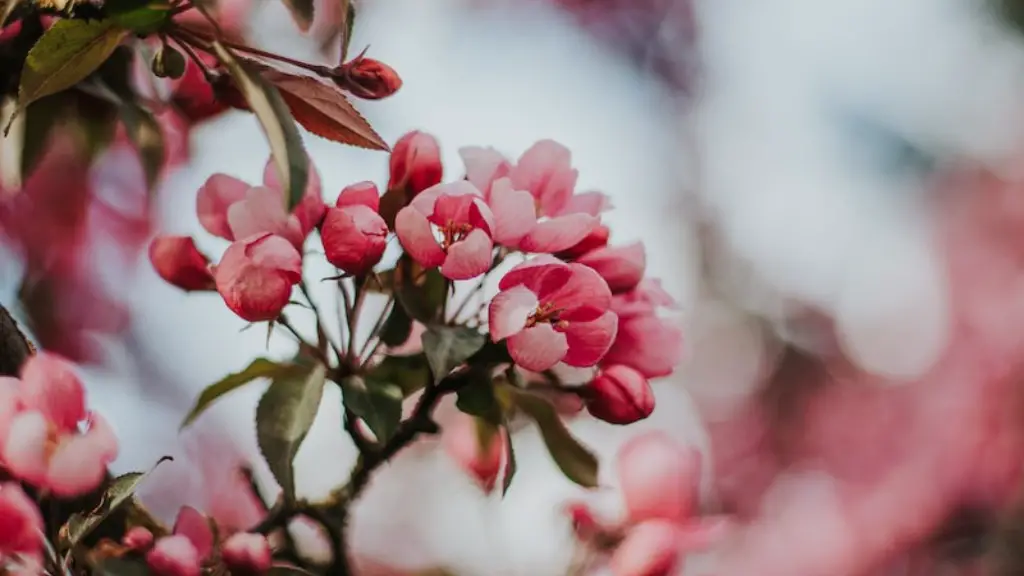Water is a vital resource for all plants, and the amount needed by each type of plant can vary widely. Lemon trees are a great example, as they require more water than many plants and require frequent watering. This article will look at how much water a small lemon tree needs, what considerations need to be taken into account, and what the potential consequences are if you don’t provide the right amount of water.
The amount of water a small lemon tree needs will depend on a range of factors, including age, species, soil type, climate, and the season in which the tree is planted. Generally speaking, a small lemon tree will need to be watered frequently. Depending on the factors listed above, a young lemon tree may need to be watered a few times a week, while an older tree may require weekly or even monthly watering.
When watering your lemon tree, it is important to remember that the goal should be to keep the soil consistently moist. You should avoid watering too frequently as this can cause root rot, and you should also avoid overwatering, which can cause the leaves and fruit to fall off the tree. You need to find the right balance depending on the conditions of your lemon tree.
It is also important to note that in certain climates, a lemon tree may require extra protection from the elements during certain times of the year. In hot, dry climates, it may need to be watered more often than a tree in a cooler, wetter climate. Additionally, if the temperature drops below freezing during a winter night, the tree should be protected from wind and cold.
Understanding how much water a small lemon tree needs is essential for proper tree care and maintenance. The right amount of water can mean the difference between a healthy, productive tree and an unhealthy, unproductive one.
Soil Types
The type of soil in which your small lemon tree is planted will also have an impact on how much water it requires. Sandy or coarse soil will require more frequent watering, as the water is more likely to be absorbed and not retained. On the other hand, clay or loam soil is more likely to hold water, so a lemon tree planted in this type of soil may need to be watered less frequently.
One of the best ways to tell if your lemon tree needs water is by poking a finger into the soil. If the soil feels dry, then the tree may need to be watered. Additionally, a layer of mulch can help to keep the soil damp and allow the tree to retain moisture for longer periods of time.
Amount of Water Needed
The amount of water a small lemon tree needs will also be determined by the stage of the tree’s life. A newly planted tree will require more watering because it has not yet developed a mature root system. On the other hand, if the tree is established and healthy, it may not need to be watered as often.
The amount of water a lemon tree requires also depends on the climate and season. In hotter months, it will require more water as the water evaporates from the soil more quickly. On the other hand, in colder months, the ground may take longer to dry, so the tree may need less frequent watering.
It is also important to remember that if a lemon tree is healthy and well-maintained, it is likely to produce more fruit than a tree that is not adequately cared for. This means that your work will be well worth it when you have an abundance of lemons in the summer.
Overwatering & Underwatering
If you find that your small lemon tree is not producing as much fruit as you would like, it may be because it is not getting the correct amount of water. Overwatering or underwatering can both have a negative effect on the tree, so it is important to make sure that you are giving it just the right amount.
If the tree is overwatered, the roots may start to rot and the leaves may drop off. Additionally, there is an increased risk of certain fungal diseases if the soil is overly moist. On the other hand, if the tree is underwatered, the soil will become very dry and the leaves will start to curl and yellow.
In both cases, carefully monitoring the soil around the tree is essential. If the soil feels dry, it is likely time to water. However, if the soil still feels damp, it is likely that the tree has had enough water and should be left alone.
Fertilization & Regular Pruning
In addition to consistent watering, it is important to fertilize and prune your small lemon tree on a regular basis. Fertilization provides the tree with essential nutrients and helps to create a healthy, productive tree. Additionally, regular pruning helps to maintain the shape and size of the tree, as well as control its growth.
Pruning can also promote new growth, which is important for the production of fruit. A tree that is pruned regularly will produce more fruit and the fruit it does produce is likely to be larger and tastier. The best time to prune the tree is in late winter or early spring.
Finally, it is also important to check the tree for pests and diseases. A variety of insects, such as ants, aphids, and scale, can damage the tree in a variety of ways. Additionally, certain fungal diseases, such as leaf spot or citrus canker, can cause significant damage to the tree if left untreated.
Protection From Storms & Disease
Due to its delicate nature, a small lemon tree is especially vulnerable to extreme weather and disease. During a storm, the winds can cause significant damage to the tree, as can hail and other forms of precipitation. Additionally, a high-level of humidity can cause the tree to become more susceptible to disease.
It is important to try to protect your lemon tree as much as possible. It should be positioned in an area that is sheltered from strong winds, and it should also be away from other trees to minimize the risk of pests or disease spreading. Additionally, regularly checking the tree for pests or disease is also key, as early detection can help prevent the spread of any afflictions.
Help From a Professional
It is important to remember that everyone’s growing conditions are different, so the best course of action is to consult a professional who can provide you with tailored advice. Professional advice could range from the quantity of water needed for optimal growth, to the best protection methods available.
In addition to gaining advice from a professional, there are also other resources available online that can provide useful information about how to care for a small lemon tree. These resources can provide detailed advice about watering, fertilizing, pruning, and other aspects of tree care, as well as information about potential pests and diseases.
Conclusion
Understanding how much water a small lemon tree needs is essential for proper tree care and maintenance. It is important to take into account a range of factors, such as age, species, soil type, climate, and season, when determining how much water is needed. Additionally, it is important to make sure that the tree has adequate protection from storms, pests, and diseases. Finally, it is always worthwhile to seek advice from a professional if you are unsure of the best course of action.



